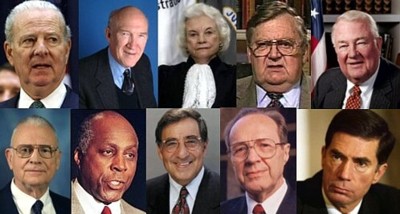Opinion (Michael J. Glennon): Go Long? Go Big? Go Back To Congress
With President Bush apparently inclined to accept some of the recommendations released by the Iraq Study Group yesterday and reject others, there's an important consideration to keep in mind. Although it's widely assumed that the president alone is empowered to decide what military option the United States should pursue in Iraq, that is not the case. Congress did not, as many believe, write the president a blank check in 2002 with regard to the use of force in Iraq. It still has a lot to say on the subject.
Since its earliest days, the Supreme Court has recognized a president's obligation to respect congressional restrictions when Congress has authorized "imperfect war" -- a war fought for limited purposes. In an imperfect war, Justice Bushrod Washington said in Bas v. Tingy (1800), those "who are authorized to commit hostilities . . . can go no farther than to the extent of their commission." The following year, in Talbot v. Seeman (1801), Chief Justice John Marshall wrote that "[t]he whole powers of war being, by the Constitution of the United States, vested in congress, the acts of that body can alone be resorted to as our guides in this enquiry."
Read the rest at the Washington Post


<< Home